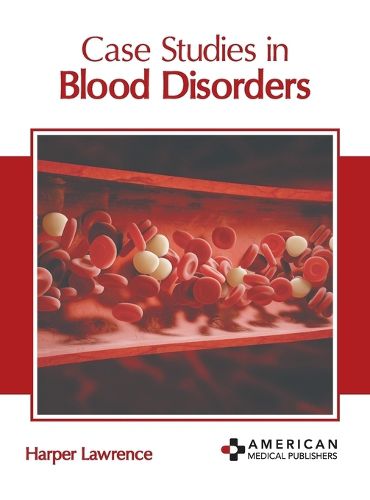Readings Newsletter
Become a Readings Member to make your shopping experience even easier.
Sign in or sign up for free!
You’re not far away from qualifying for FREE standard shipping within Australia
You’ve qualified for FREE standard shipping within Australia
The cart is loading…






Blood disorders, also known as hematologic disorders, refer to a wide range of medical conditions that affect the components of blood or its ability to function properly. These disorders can involve abnormalities in white blood cells, red blood cells, platelets, or the plasma that carries them. A few of the common blood disorders are anemia, hemophilia, and various types of leukemia. Other examples include thrombocytopenia, which is a condition marked by low platelet counts, and sickle cell disease, a genetic disorder causing abnormal red blood cells. Prominent symptoms of these disorders are dizziness, rapid heartbeat and fatigue. Some of the treatments which are used for managing blood disorders are blood and platelet transfusions, corticosteroids, and anticoagulants. This book contains some path-breaking studies on blood disorders. It will serve as a valuable source of reference for graduate and postgraduate students.
$9.00 standard shipping within Australia
FREE standard shipping within Australia for orders over $100.00
Express & International shipping calculated at checkout
Stock availability can be subject to change without notice. We recommend calling the shop or contacting our online team to check availability of low stock items. Please see our Shopping Online page for more details.
Blood disorders, also known as hematologic disorders, refer to a wide range of medical conditions that affect the components of blood or its ability to function properly. These disorders can involve abnormalities in white blood cells, red blood cells, platelets, or the plasma that carries them. A few of the common blood disorders are anemia, hemophilia, and various types of leukemia. Other examples include thrombocytopenia, which is a condition marked by low platelet counts, and sickle cell disease, a genetic disorder causing abnormal red blood cells. Prominent symptoms of these disorders are dizziness, rapid heartbeat and fatigue. Some of the treatments which are used for managing blood disorders are blood and platelet transfusions, corticosteroids, and anticoagulants. This book contains some path-breaking studies on blood disorders. It will serve as a valuable source of reference for graduate and postgraduate students.